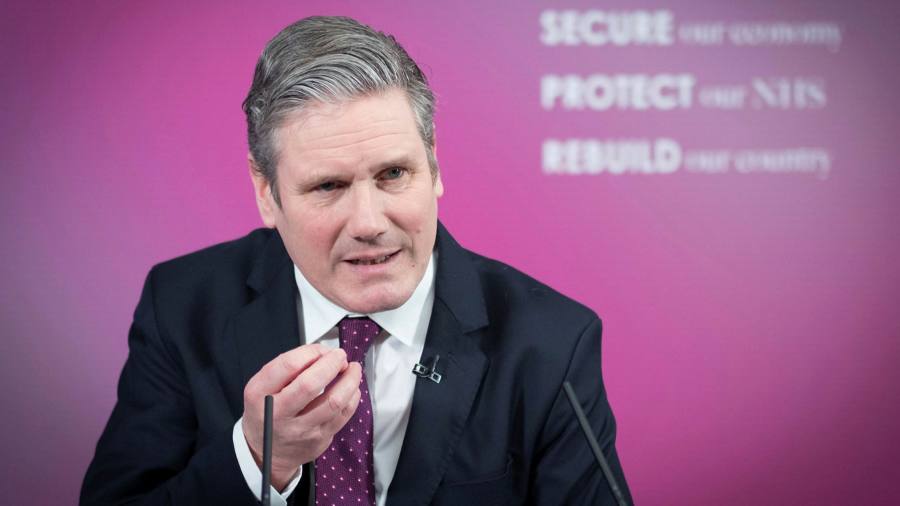[ad_1]
Sir Keir Starmer called on Thursday for the introduction of a British recovery bond to help rebuild the UK’s post-Covid economy, in a major speech aimed at resetting his Labour leadership.
Starmer has come under fire from critics in recent weeks for failing to set out a clear policy agenda for running the country and for letting prime minister Boris Johnson off the hook over his handling of the coronavirus crisis.
Announcing plans to forge a closer partnership with the private sector, Starmer pledged in his speech to “back a new generation of British entrepreneurs†through the creation of start-up loans for 100,000 businesses across the UK.
But he also said Labour would seek to form a “new contract with the British peopleâ€, which would encourage the public to invest in rebuilding the economy. In return, he added, a Labour government would provide “financial security for millionsâ€.Â
Under the proposals for the recovery bond, the public would be able to invest in a savings account established by the government, similar to National Savings & Investments bonds.
The money raised by the bond would be spent on initiatives to boost the country’s recovery following the coronavirus pandemic by supporting businesses through a new national infrastructure bank.
“[The bond] could help build the infrastructure of the future — investing in science, skills, technology and British manufacturing,†Starmer said. “It would also provide security for savers and give millions of people a proper stake in Britain’s future.â€Â
But the idea raised eyebrows among some economists and policy experts who questioned whether the proposal made financial sense when interest rates were at historic lows.
Torsten Bell, chief executive of the Resolution Foundation think-tank, tweeted: “If it’s paying above market rates to borrow that’s one: expensive, and two: a transfer to pensioners and the rich.â€
Thomas Pugh, UK economist at consultancy Capital Economics, added that the initiative was very similar to existing government measures such as gilts, adding: “If investors want to lend money to the government they can buy gilts or invest in a fund that buys gilts.
“But if it works in a similar way to green bonds where the investment is linked directly to a single project in a specific region or area, that would signal a marked difference from existing financial tools.â€
In addition to signalling Labour’s economic thinking ahead of the Budget on March 3, Starmer also used the speech to step up his criticism of the government’s handling of the pandemic, stating it had been “slow at every stage†and had “ignored adviceâ€.
But he also argued that the “foundations†of society had been “weakened†by a decade of austerity and “failed ideology†under a Conservative party that didn’t believe it was the role of a government “to tackle inequality or insecurityâ€.
A Labour budget would also support British businesses and workers by extending the furlough scheme, ending the pay freeze on key worker salaries and extending the business rate relief and VAT cut, Starmer added.
The Labour leader’s speech received a warm reception from some within the business community. Mike Cherry, national chair of the Federation of Small Businesses, said the past year had been “incredibly difficult†for businesses, adding that he welcomed Starmer’s “pro-enterprise proposals to help people start their own businessesâ€.
“Small firms are the backbone of the country and without vital support for them, including key help for entrepreneurs, we won’t be able to get the country’s economic engine roaring once more,†he said.
[ad_2]
Source link





